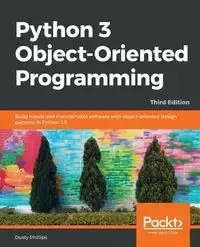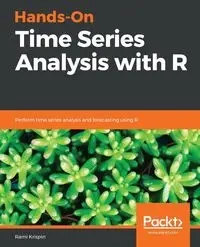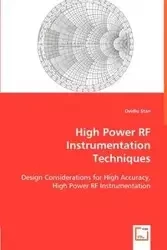Książki informatyczne po angielsku
( ilość produktów: 20 )Książki obcojęzyczne - Informatyka : Angielski

Microsoft Windows Networking Essentials - Gibson Darril
- Autorzy:
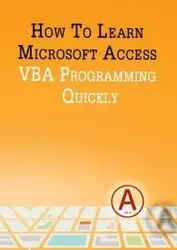
How to Learn Microsoft Access VBA Programming Quickly! - Besedin Andrei
- Autorzy:

Co-Intelligence - Ethan Mollick
- Autorzy:
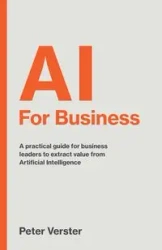
AI For Business - Peter Verster
- Autorzy:

Qualification Perception of Academics for Innovation Management - Kurnaz Ayca
- Autorzy:

A Basic Approach - Çalışkanelli İpek
- Autorzy:
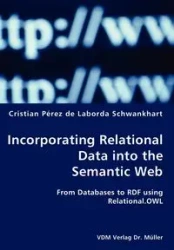
Incorporating Relational Data into the Semantic Web- Fronal.OWLom Databases to RDF using Relational.OWL - Pérez de Laborda Schwankhart Cristian

ENERGY-LATENCY TRADE-OFFS IN REAL-TIME WIRELESS SENSOR NETWORKS - Miao Lei
- Autorzy:

The Gamer's Brain - Celia Hodent
- Autorzy:
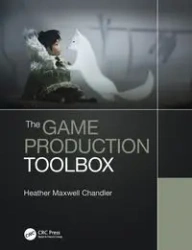
The Game Production Toolbox - Heather Maxwell Chandler
- Autorzy:

Building Blocks of Tabletop Game Design - Geoffrey Engelstein, Isaac Shalev
- Autorzy:

A Practical Guide to Level Design - Benjamin Bauer
- Autorzy:
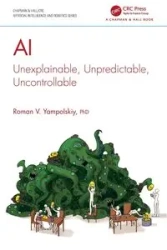
AI - Roman V. Yampolskiy
- Autorzy:

Traffic Secrets - Russell Brunson
- Autorzy:

Expert Secrets - Russell Brunson
- Autorzy:
Książki do informatyki po angielsku - dla pasjonatów nauki języka i programowania
Kategoria "Informatyka" na stronie Matfel.pl to prawdziwy raj dla miłośników tej dziedziny. Znajdują się tutaj książki o programowaniu, bazach danych, sieciach komputerowych i wielu innych tematach, a wszystko to w języku angielskim. Jeśli jesteś studentem, programistą lub osobą chcącą poszerzyć swoją wiedzę na temat informatyki, ta sekcja jest idealnym miejscem dla Ciebie.
Podręcznik do informatyki po angielsku
W tej kategorii znajdziesz wiele podręczników, które będą świetnym wsparciem w nauce języka angielskiego oraz programowania. Dzięki nim będziesz miał okazję połączyć naukę dwóch ważnych dziedzin na raz. Niezależnie od tego, czy jesteś początkującym czy zaawansowanym specjalistą, podręczniki te zagwarantują Ci szeroki wachlarz informacji, praktyczne zadania i ciekawe przykłady.
Książka informatyka po angielsku
Książki o informatyce po angielsku to również świetne rozwiązanie dla osób, które chcą rozwijać swój język podczas czytania na tematy związane z informatyką. Dzięki nim poznasz specjalistyczną terminologię w języku angielskim oraz nauczysz się, jak używać jej w praktyce. Ciekawe opisy, krótkie artykuły i praktyczne wskazówki sprawią, że nauka języka angielskiego będzie przyjemnością.
Informatyka podręcznik po angielsku
Podręczniki z dziedziny informatyki po angielsku są nieocenionym wsparciem w nauce zarówno języka angielskiego, jak i programowania. Oferują one bogatą bazę wiedzy, która pozwoli Ci na zdobycie szerokiej wiedzy teoretycznej oraz umiejętności praktycznych. Dzięki temu będziesz mógł rozwijać się na wielu polach jednocześnie.
Książki do informatyki po angielsku - szeroki wybór dla każdego
Księgarnia Matfel.pl oferuje szeroki wybór książek do informatyki po angielsku. Niezależnie od tego, czy jesteś studentem, profesjonalnym programistą czy osobą dopiero zaczynającą przygodę z informatyką, na pewno znajdziesz tu coś dla siebie.
Jednym z najważniejszych atutów książek do informatyki po angielsku jest możliwość połączenia nauki języka angielskiego z nauką informatyki. Dzięki temu uczysz się dwóch rzeczy na raz i rozwijasz swoje umiejętności w obu dziedzinach. Dodatkowo, książki te oferują wiele praktycznych przykładów i zadań, które pozwolą Ci wdrażać zdobytą wiedzę w działaniu.
Książki o programowaniu, tworzeniu stron internetowych, sieciach komputerowych czy bazach danych to tylko niektóre z dostępnych tematów. Bez względu na to, czy jesteś początkujący czy zaawansowany w danej dziedzinie, na pewno znajdziesz tu coś dla siebie.
Książki do informatyki po angielsku - oferta dla ambitnych
Jeśli jesteś osobą ambitną, która posiada już pewne doświadczenie w dziedzinie informatyki, to książki do informatyki po angielsku są dla Ciebie idealnym wyborem. Oferują one zaawansowane zagadnienia, które rozwijają umiejętności i poszerzają wiedzę w danej dziedzinie.
Przykładowe tytuły takich książek to "Advanced Programming Techniques", "Web Development for Experts", "Data Science in Action". To tylko niektóre z niezliczonych propozycji, które oferuje Matfel.pl. Każdy ambitny miłośnik informatyki znajdzie coś odpowiedniego dla siebie.
Nie czekaj dłużej i zacznij naukę już dziś! Wybierz jedną z wielu książek do informatyki po angielsku dostępnych na Matfel.pl. Nie tylko poszerzysz swoją wiedzę w dziedzinie informatyki, ale również rozwijasz swoje umiejętności językowe. To idealna kombinacja dla wszystkich pasjonatów nauki i rozwoju.


